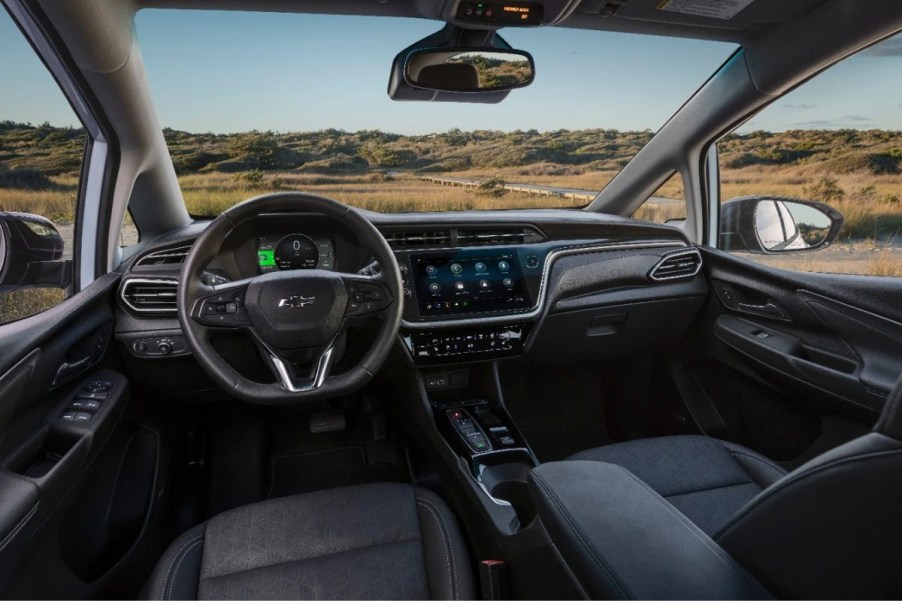
The Least Popular Chevy Model of 2023 Will Shock You
Automakers face significant challenges while trying to keep up with a rapidly changing market. They include dealing with supply chain shortages, union strikes, and the growing demand for EV technology in emerging products. Like other car companies, Chevrolet is constantly striving to grow sales. Sometimes, that means discontinuing a model to make way for an improved vehicle. Such is the case with the Bolt EV, surprisingly the least popular Chevy model 2023. Over the years, the Bolt has been one of the most-driven EVs and the third-best-selling electric vehicle in the United States.
So, how did the popular Bolt EV become the worst-selling Chevy model of 2023?
Chevrolet’s U.S. sales numbers for 2023
Chevrolet’s second-quarter (Q2) U.S. sales improved by 17%. Overall, the company’s sales increased by more than 16% year-to-date (YTD). The most popular Chevy models experienced the following sales in Q2 2023 and percentage change year-over-year:
- Camaro, 9,557, +110% gain
- Corvette, 9,125, +5.74% gain
- Equinox, 52,949, -12.69% loss
- Malibu, 40,731, +25.38% gain
- Silverado, 141,299, -1.21% loss
- Tahoe, 29,258, +38.87% gain
The Bolt EV was the least popular Chevy passenger car in Q2 2023, with 5,441 units sold. However, that low number represents a +368.40% gain for the electric hatchback since Q2 2022.
Why is the Bolt EV the worst-selling Chevy?

The Chevy Bolt EV hatchback is not selling as well as other models in its class despite enjoying a nearly 370% sales gain YTD. Some potential reasons could include supply chain and production problems that have not eased up since the pandemic began. Also, the recent battery fire fiasco could contribute to lower sales, indicating that the Bolt’s reputation may not have fully recovered.
In addition, most consumers still avoid electric vehicles, with many people seemingly waiting for the technology to evolve, driving ranges to expand, and prices to drop. Additionally, because GM discussed discontinuing the Bolt EV and then reversed course by saying it won’t retire the nameplate after all, consumers might be confused and wondering whether this EV still has problems.
During a recent quarterly earnings call, GM CEO Mary Barra announced Chevy is working on another generation of the Bolt.
“Our customers love today’s Bolt,” she explained. “It has been delivering record sales and some of the highest customer satisfaction and loyalty scores in the industry.”
Observers believe the automaker could soon retire the battery technology used in the Bolt EV and EUV because no other current GM electric vehicle uses this setup.
What’s in the pipeline for the Chevy Bolt EV?
The Chevy Bolt is available in two body styles. The hatchback has a base MSRP of $26,500, and the larger Bolt EUV starts at $27,800. Both models qualify for the federal EV tax rebate of $7,500 for 2023, making them the most affordable new EVs.
General Motors uses a skateboard-like Ultium platform for its EVs, consisting of a nearly flat battery pack, steering, suspension, and electric motors that can be scaled up or down according to the vehicle’s needs. However, Barra announced that the next generation of the Chevy Bolt EV will use “Ultium and Ultifi technologies,” Kelley Blue Book reports.
Ultifi is the EV software that controls the user interfaces in GM vehicles and includes entertainment and information technologies. The GM CEO claims Chevrolet will release the new and improved Bolt “more quickly compared to an all-new program,” meaning the EV should not be off the market for too long.


